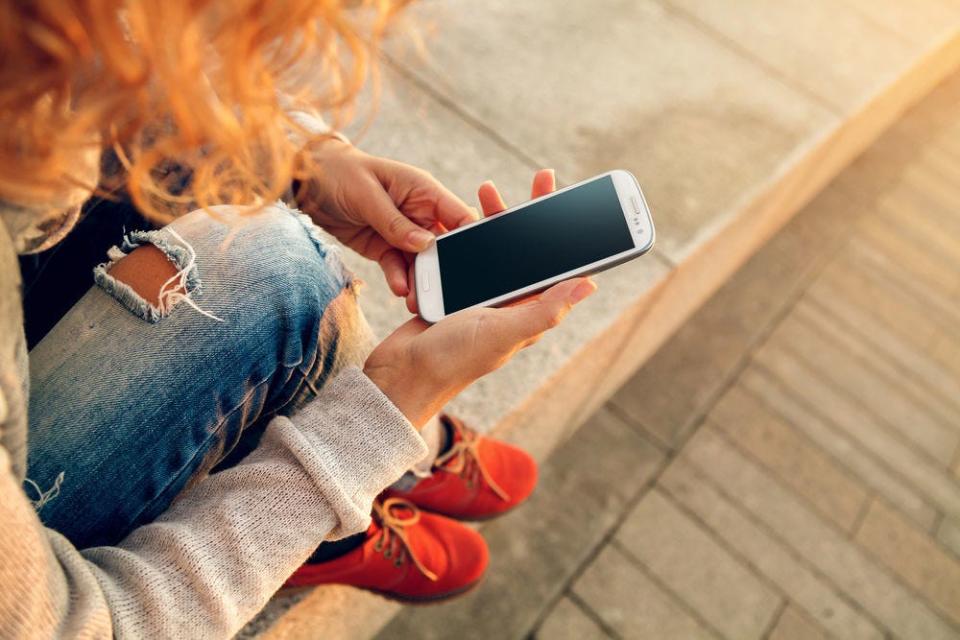Teen depression is on the rise. Are social media influencers to blame?
The term “influencer” predates the content creators that fill modern media. You likely do not picture early philosophers like Socrates and Confucius, or even revolutionary performer Marilyn Monroe of the 1960s, upon hearing such a colloquially transformed word.
What is the difference between these “influencers” spanning from modern to ancient history, and the “insta baddies,” “mommy bloggers,” Twitch streamers, and TikTok sensations that have taken social media by storm?
Yes, it’s the internet.
“But I know that social media is fake. I don’t fall for any of that,” you might say. Reality is, you do. Not to say that it is any individual’s fault, but rather the complete shift from primarily interpersonal communication, to a life spent on the Internet.

It is nearly impossible in the modern age to distance yourself from the Internet. Jobs, school, and long-distance communication are fundamental aspects of life that many cannot afford to avoid. But with this rise in online culture comes inevitable, unnoticeable, detriments.
Online advertisements from brands and companies largely facilitate the rise of influencer marketing. Influencer marketing utilizes endorsements and strategic product placement among well-known internet personalities, as a means of increasing company profits.
The reason that this business practice has blown up in the past decade is because, well, it works. Influencer marketing plays off the codependency of human nature and the tendency to imitate and conform. In most cases, consumers do not actively think, “Charli D’Amelio drinks Dunkin’ coffee! I have to be just like her!” The influencer-to-consumer pipeline is more related to subconscious, gradual trust of those who are popular.
Central Bucks book ban:We must be allowed to read books some parents want banned. Here's why
More from Teen Takes:Pennsbury senior greets the sunrise every day. Why you should look on the bright side, too
Tying into the persuasive device of “ethos,” we tend to believe those who are qualified, respected, or even simply known.
We are online all the time. JAMA Pediatrics reported that teenagers on average spend nearly eight hours on their phone per day. Aside from the obvious cause for concern of this outrageous statistic, the online consumption of influencer marketing is unavoidable.
Now onto the next, arguably more dangerous, aspect of influencer media: mental health.
Because influencers are constantly in the public eye, their physical appearance is undoubtedly a vital factor in their success, and consequently, their profits.
Makeup, swimsuit photos, and posts edited with Facetune and Photo Plastic create impossible standards for impressionable young consumers. Impossible, in the most literal sense, meaning not possible to achieve or imitate.
How could this NOT lead to rising rates of depression? As one would assume, it does. Twenty percent of teens will experience a major depressive episode before adulthood. This does not imply that depleting self-esteem in the influencer age is unique to adolescents. There is hardly an escape from the thought that is slowly conquering the minds of consumers: “Am I not good enough?”
This poses the question: To what extent can we blame these influencers? They didn’t invent the internet; they're simply playing the game. But is their complicity detrimental?
On one hand, this is their source of income: brand deals, partnerships, and revenue from likes and shares. How is it fair to blame them for earning a living, just as, say, an office employee does?
Some argue that it is unethical to earn money when it harms others. Do influencers harm others? How does one quantify “harm?” Does affected mental health count as harm?
This is clearly an unagreed-upon, multifaceted topic. However, one must be blind to miss the adverse effects of the influencer age.
Yet, this is the state of our online society, and it is unlikely to change in the foreseeable future.

Lily Erdogan is a junior at Pennsbury High School. She loves to run, and is a cross country and track athlete. She also participates in theatre, is president of the school’s Democrats Club, and serves on the editorial board of the Pennsbury Voice.
This article originally appeared on Bucks County Courier Times: Teen depression is on the rise. Are social media influencers to blame?

